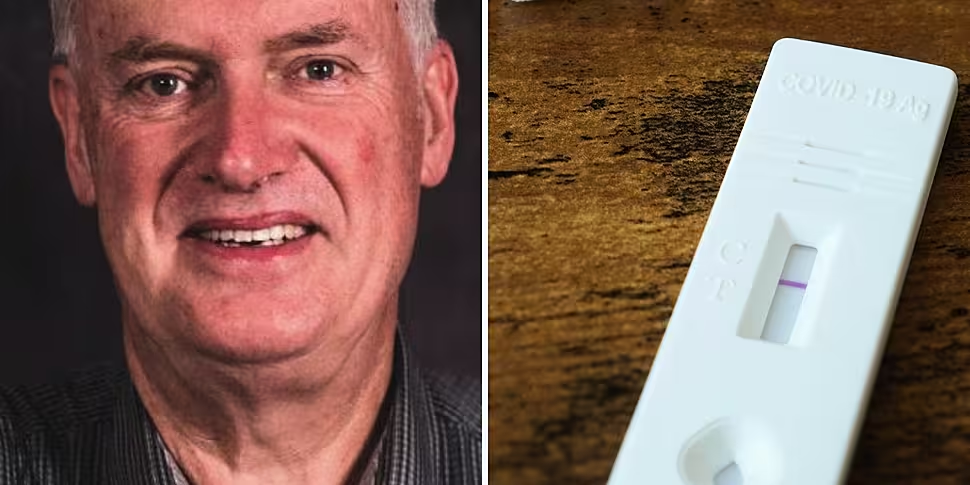Ireland could soon follow the US in recommending a five-day isolation period for COVID patients who have no symptoms, according to Trinity Professor Luke O’Neill.
The US Centres for Disease Control has said asymptomatic patients can end their isolation after five days – but must wear a mask around others for the next five.
The CDC advice is not mandatory; however, states and businesses generally follow the advice.
On Late Breakfast with Clare McKenna this morning, Professor Luke O’Neill said Europe may not be far behind.
“We may move from 10 days to five and that may happen,” he said. “That’s because we know you are infectious probably from two days before symptoms to three days after.”
“That is your infectious period and after that, you are pretty clear of it.
“So, we may move to recommendations for a five-day isolation rather than ten – that is the next debate to watch in Europe in the coming days.
“One reason for that is to keep people in the workplace. Because, obviously, if you are ten days out of work that can really affect the labour market and all the rest of it – especially the hospitals.”
The CDC announced the new advice as the US has seen a surge in cases in recent days due to Omicron, which is now the country’s dominant variant.
While early evidence suggests the variant is milder than previous strains, the growing number of infections is putting pressure on several industries, including aviation.
The CDC had already shortened the isolation period for healthcare workers from 10 days to seven days.
Professor O’Neill also told Clare that data continues to suggest that the link between cases, hospitalisations and death has now been broken.
“The statisticians are looking at this now and the link from cases to hospitalisations and death has been broken with Omicron – that is very clear now,” he said.
“Previously, with Delta, there was a clear link. You could predict it almost, how cases would result in X number of people in hospital and then, sadly, death rates.
“That has gone down a huge amount with Omicron – it is a tenth of what it was, at the moment anyway. So, something has happened there, Omicron is quite different to Delta and that gives us a bit of hope as we move into January.”
He noted that the “virus is still rampant throughout the world” so the threat of future variants remains.
In the meantime however, he said the vaccine and booster programmes should continue to ensure that high case numbers do not necessarily mean the hospitals will be overrun.
There were 521 COVID patients in hospital this morning – up 60 since yesterday and 78 since this day last week.
The number of patients in intensive care has dropped by 10 since last week however, with 92 recorded this morning.









